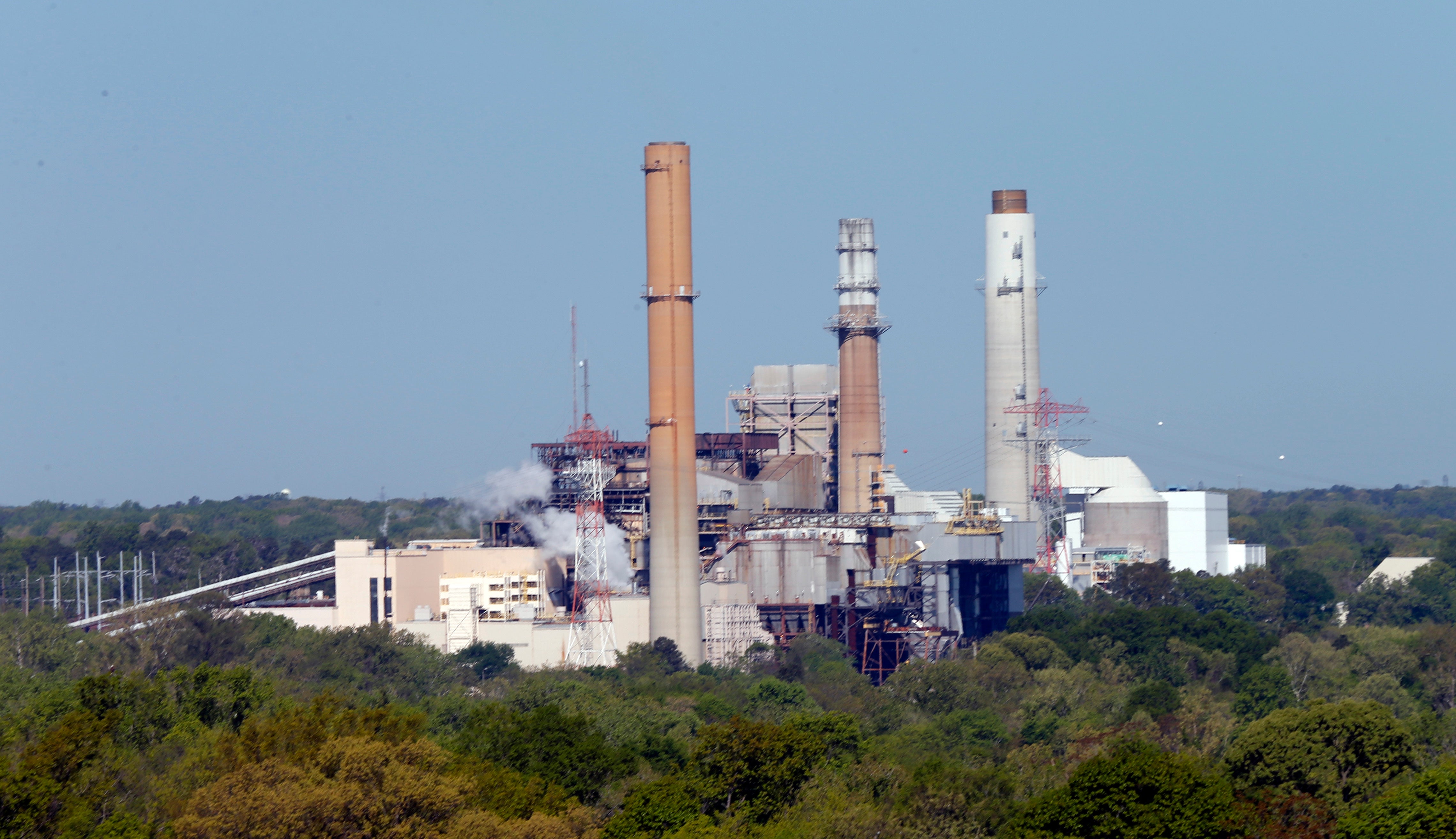EPA proposes stricter limits on coal plant water pollution
The Biden administration on Wednesday proposed strengthening a rule aimed at reducing polluted wastewater from coal-burning power plants that has contaminated streams, lakes and underground aquifers

The Biden administration on Wednesday proposed strengthening a rule aimed at reducing polluted wastewater from coal-burning power plants that has contaminated streams, lakes and underground aquifers across the nation.
Under the Clean Water Act, the Environmental Protection Agency sets pollution standards to limit wastewater discharge from the power industry and other businesses. The Trump administration rolled back pollution standards so utilities could use cheaper technologies and take longer to comply with guidelines for cleaning coal ash and toxic heavy metals such as mercury, arsenic and selenium from plant wastewater before dumping it into waterways.
The Biden administration's proposal for stricter standards at coal-burning plants also encourages the plants to retire or switch to other fuels such as natural gas by 2028.
EPA Administrator Michael Regan said the plan would particularly benefit low-income communities that have been disproportionately affected by pollution from coal-fired power plants. And it would provide “greater certainty for industry,” Regan said.
The National Mining Association slammed the plan, saying that EPA had acted on its “longstanding threat to make it impossible for utilities to make decisions based on ... what keeps the lights on,” and forcing them instead to make decisions ”solely based on EPA's environmental agenda."
It called EPA's approach “plainly irresponsible.”
The plan would address three types of wastewater generated at coal-fired power plants: from scrubbers that remove pollutants from exhaust systems; water used to flush out boilers at the bottom of a plant; and coal ash ponds that often leach into nearby waterways, EPA said.
Coal plants are responsible for as much as 30% of all toxic water pollution from all industries in the United States. The pollution affects aquatic ecosystems, drinking water and recreational waters.
Sierra Club attorney Joshua Smith said the changes were “a big step in the right direction” for forcing hundreds of coal-fired power plants across the country to take responsibility for the pollution that surrounding communities have long borne.
He added that the technologies used to eliminate the discharges highlighted by Biden administration officials have come a long way since a 2015 Obama-era rule that was rolled back under former President Donald Trump.
“At this point, it is cost-effective and technologically feasible for ... coal plants to eliminate those discharges,” Smith said.
Radhika Fox, assistant EPA administrator for water, said the rule would have almost no impact on electricity costs for households. “We estimate a 63 cents per year increase for a typical household,” Fox said.
The proposal includes a carve-out for coal-burning plants that plan to retire or stop burning coal by 2028 — and would allow such plants to continue meeting the 2015 and 2020 rules. The proposal also would extend a deadline for power plants to opt-in to the retirement or fuel-switch plan, "providing flexibility for some plants to cease burning coal earlier than they might otherwise do so,'' the EPA said.
Edison Electric Institute, which represents investor-owned electric companies, said it was still reviewing EPA’s proposal but applauded the agency’s “coordinated and holistic” approach to regulating the power sector.
Administration officials said the new rule would likely force the closure of at least one coal-fired power plant in the country, but did not provide more details.
Thomas Cmar, senior attorney with the environmental group Earthjustice, said the rule would “finally force the power industry to do what it should have done decades ago.”
“We urge EPA to finalize the strongest rule possible as quickly as possible, so that power companies will no longer be allowed to profit off of treating our waterways like an open sewer for toxic pollutants,” Cmar said.
___
Associated Press writer Matthew Daly contributed to this story.
___
The Associated Press receives support from the Walton Family Foundation for coverage of water and environmental policy. The AP is solely responsible for all content. For all of AP’s environmental coverage, visit https://apnews.com/hub/climate-and-environment
Bookmark popover
Removed from bookmarks